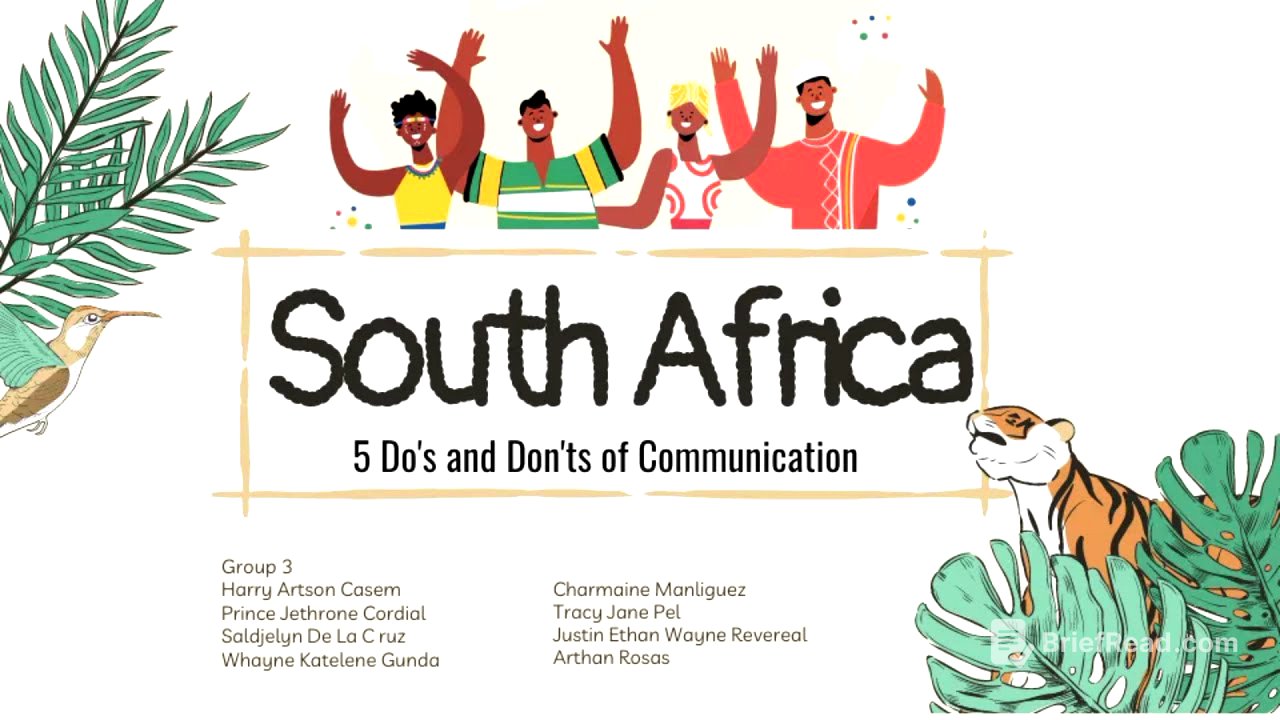TLDR;
This video outlines five "do's" and five "don'ts" for effective communication in South Africa, emphasising the importance of understanding the country's diverse cultural landscape and volatile past. It covers both verbal and non-verbal cues, highlighting the need for directness, respect, and awareness of local customs to avoid misunderstandings.
- South Africans generally prefer a direct communication style.
- Respectful greetings, including handshakes, eye contact, and addressing people by their title and last name, are crucial.
- Physical contact is common and seen as a sign of warmth and trust.
- Sensitive topics like politics, racism, and inequality should be avoided.
- Certain gestures, like pointing with an index finger or using the "peace sign" (V sign), can be considered rude.
Introduction to South African Communication [0:01]
South Africa is home to a diverse range of African tribes, each with its own languages and customs. Colonisation in the 17th century led to societal inequalities, making it difficult to generalise cultural notions on a national level. South Africans have developed a heightened multicultural sensitivity due to their history and social climate. While cultures should be understood separately, notions of time, space and etiquette are shared.
Do's of Communication: Verbal [1:15]
South Africans generally prefer a direct style of communication, where intentions are usually self-evident. They are likely to point out mistakes or disagreements directly, which may seem blunt but is not intended to be offensive. Honesty is generally appreciated. It's important to greet people respectfully and promptly, often with a handshake, eye contact, and a smile. Address people by their title and last name until invited to use their first name. Africans also tend to speak loudly, especially when at a distance, which should not be mistaken for anger.
Do's of Communication: Non-Verbal [2:43]
Physical contact is common and shows warmth and trust. A lack of physical contact can be interpreted as unfriendliness. Maintaining eye contact shows respect and interest when someone is speaking. Avoiding eye contact can be seen as rude and disrespectful.
Don'ts of Communication: Verbal [3:25]
Avoid discussing sensitive topics such as politics, racism, violence, and inequality, even if you are knowledgeable about them. South Africans may feel that outsiders cannot fully understand the situation. Openly expressing anger or losing control of emotions should be avoided. Communication depends heavily on location, as different areas have their own traditions, so observe the level of formality required.
Don'ts of Communication: Non-Verbal [4:04]
Pointing your index finger at someone is considered rude. Avoid certain hand gestures and body language, such as making a "V" with the index and middle finger (peace sign), as this is considered rude in South Africa, though it may mean peace in other countries. Using your left hand to make gestures or putting your hands in your pockets is impolite and can be misinterpreted as disrespectful.









